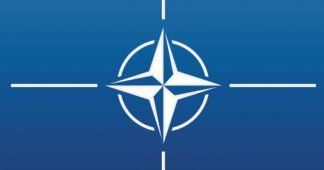In the following Memorandum addressed to the Tsar in February 1914, the ex-Interior Minister Pyotr Nikolayevich Durnovo predicts with what happened in 1917 with astonishing accuracy
The central factor of the period of world history through which we are now passing is the rivalry between England and Germany. This rivalry must inevitably lead to an armed struggle between them, the issue of which will, in all probability, prove fatal to the vanquished side. The interests of these two powers are far too incompatible, and their simultaneous existence as world powers will sooner or later prove impossible. On the one hand, there is an insular State, whose world importance rests upon its domination of the sea, its world trade, and its innumerable colonies. On the other, there is a powerful continental empire, whose limited territory is insufficient for an increased population. It has therefore openly and candidly declared that its future is on the seas. It has, with fabulous speed, developed an enormous world commerce, built for its protection a formidable navy, and, with its famous trademark, “Made in Germany,” created a mortal danger to the industrial and economic prosperity of its rival. Naturally, England cannot yield without a fight, and between her and Germany a struggle for life or death is inevitable.
The armed conflict impending as a result of this rivalry cannot be confined to a duel between England and Germany alone. Their resources are far too unequal, and, at the same time, they are not sufficiently vulnerable to each other. Germany could provoke rebellion in India, in South Africa, and, especially, a dangerous rebellion in Ireland, and paralyze English sea trade by means of privateering and, perhaps, submarine warfare, thereby creating for Great Britain difficulties in her food supply; but, in spite of all the daring of the German military leaders, they would scarcely risk landing in England, unless a fortunate accident helped them to destroy or appreciably to weaken the English navy. As for England, she will find Germany absolutely invulnerable. All that she may achieve is to seize the German colonies, stop German sea trade, and, in the most favorable event, annihilate the German navy, but nothing more. This, however, would not force the enemy to sue for peace. There is no doubt, therefore, that England will attempt the means she has more than once used with success, and will risk armed action only after securing participation in the war, on her own side, of powers stronger in a strategical sense. But since Germany, for her own part, will not be found isolated, the future Anglo-German war will undoubtedly be transformed into an armed conflict between two groups of powers, one with a German, the other with an English orientation.
Until the Russo-Japanese War, Russian policy had neither orientation. From the time of the reign of Emperor Alexander Ill, Russia had a defensive alliance with France, so firm as to assure common action by both powers in the event of attack upon either, but, at the same time, not so close as to obligate either to support unfailingly, with armed force, all political actions and claims of the ally. At the same time, the Russian Court maintained the traditional friendly relations, based upon ties of blood, with the Court of Berlin. Owing precisely to this conjuncture, peace among the great powers was not disturbed in the course of a great many years, in spite of the presence of abundant combustible material in Europe. France, by her alliance with Russia, was guaranteed against attack by Germany; the latter was safe, thanks to the tried pacifism and friendship of Russia, from revanche ambitions on the part of France; and Russia was secured, thanks to Germany’s need of maintaining amicable relations with her, against excessive intrigues by Austria-Hungary in the Balkan peninsula. Lastly, England, isolated and held in check by her rivalry with Russia in Persia, by her diplomats’ traditional fear of our advance on India, and by strained relations with France, especially notable at the time of the well-known Fashoda incident, viewed with alarm the increase of Germany’s naval power, without, however, risking an active step.
The Russo-Japanese War radically changed the relations among the great powers and brought England out of her isolation. As we know, all through the Russo-Japanese War, England and America observed benevolent neutrality toward Japan, while we enjoyed a similar benevolent neutrality from France and Germany. Here, it would seem, should have been the inception of the most natural political combination for us. But after the war, our diplomacy faced abruptly about and definitely entered upon the road toward rapprochement with England. France was drawn into the orbit of British policy; there was formed a group of powers of the Triple Entente, with England playing the dominant part; and a clash, sooner or later, with the powers grouping themselves around Germany became inevitable.
To sum up, the Anglo-Russian accord has brought us nothing of practical value up to this time, while for the future, it threatens us with an inevitable armed clash with Germany.
Italy, if she has any conception of her real interests, will not join the German side. For political as well as economic reasons, she undoubtedly hopes to expand her present territory. Such an expansion may be achieved only at the expense of Austria, on one hand, and Turkey, on the other. It is, therefore, natural for Italy not to join that party which would safe guard the territorial integrity of the countries at whose expense she hopes to realize her aspirations. Furthermore, it is not out of the question that Italy would join the anti-German coalition, if the scales of war should incline in its favor, in order to secure for herself the most favorable conditions in sharing the subsequent division of spoils. . . .
From the sum of these unfavorable factors we should deduct the Far East. Both America and Japan—the former fundamentally, and the latter by virtue of her present political orientation—are hostile to Germany, and there is no reason to expect them to act on the German side. Further more, the war, regardless of its issue, will weaken Russia and divert her attention to the West, a fact which, of course, serves both Japanese and American interests. Thus, our rear will be sufficiently secure in the Far East, and the most that can happen there will be the extortion from us of some concessions of an economic nature in return for benevolent neutrality. Indeed, it is possible that America or Japan may join the anti-German side, but, of course, merely as usurpers of one or the other of the unprotected German colonies.
Another circumstance unfavorable to our defense is its far too great dependence, generally speaking, upon foreign industry, a fact which, in connection with the above noted interruption of more or less convenient communications with abroad, will create a series of obstacles difficult to overcome. The quantity of our heavy artillery, the importance of which was demonstrated in the Japanese War, is far too inadequate, and there are few machine guns. The organization of our fortress defenses has scarcely been started, and even the fortress of Reval, which is to defend the road to the capital, is not yet finished.
The network of strategic railways is inadequate. The railways possess a rolling stock sufficient, perhaps, for normal traffic, but not commensurate with the colossal demands which will be made upon them in the event of a European war. Lastly, it should not be forgotten that the impending war will be fought among the most civilized and technically most advanced nations. Every previous war has invariably been followed by something new in the realm of military technique, but the technical backwardness of our industries does not create favorable conditions for our adoption of the new inventions.
All these factors are hardly given proper thought by our diplomats, whose behavior toward Germany is, in some respects, even aggressive, and may unduly hasten the moment of armed conflict, a moment which, of course, is really inevitable in view of our British orientation.
The question is whether this orientation is correct, and whether even a favorable issue of the war promises us such advantages as would compensate us for all the hardships and sacrifices which must attend a war unparalleled in its probable strain.
For there can be no doubt that the war will necessitate expenditures which are beyond Russia’s limited financial means. We shall have to obtain credit from allied and neutral countries, but this will not be granted gratuitously. As to what will happen if the war should end disastrously for us, I do not wish to discuss now. The financial and economic consequences of defeat can be neither calculated nor foreseen, and will undoubtedly spell the total ruin of our entire national economy.
But even victory promises us extremely unfavorable financial prospects; a totally ruined Germany will not be in a position to compensate us for the cost involved. Dictated in the interest of England, the peace treaty will not afford Germany opportunity for sufficient economic recuperation to cover our war expenditures, even at a distant time. The little which we may perhaps succeed in extorting from her will have to be shared with our allies, and to our share there will fall but negligible crumbs, compared with the war cost. Meantime, we shall have to pay our war loans, not without pressure by the allies. For, after the destruction of German power, we shall no longer be necessary to them. Nay, more, our political might, enhanced by our victory, will induce them to weaken us, at least economically. And so it is inevitable that, even after a victorious conclusion of the war, we shall fall into the same sort of financial and economic dependence upon our creditors, compared with which our present dependence upon German capital will seem ideal.
However, no matter how sad may be the economic prospects which face us as a result of union with England, and, by that token, of war with Germany, they are still of secondary importance when we think of the political consequences of this fundamentally unnatural alliance.
From this point of view, a struggle between Germany and Russia, regardless of its issue, is profoundly undesirable to both sides, as undoubtedly involving the weakening of the conservative principle in the world of which the above-named two great powers are the only reliable bulwarks. More than that, one must realize that under the exceptional conditions which exist, a general European war is mortally dangerous both for Russia and Germany, no matter who wins. It is our firm conviction, based upon a long and careful study of all contemporary subversive tendencies, that there must inevitably break out in the defeated country a social revolution which, by the very nature of things, will spread to the country of the victor.
During the many years of peaceable neighborly existence, the two countries have become united by many ties, and a social upheaval in one is bound to affect the other. That these troubles will be of a social, and not a political, nature cannot be doubted, and this will hold true, not only as regards Russia, but for Germany as well. An especially favorable soil for social upheavals is found in Russia, where the masses undoubtedly profess, unconsciously, the principles of Socialism. In spite of the spirit of antagonism to the Government in Russian society, as unconscious as the Socialism of the broad masses of the people, a political revolution is not possible in Russia, and any revolutionary movement inevitably must degenerate into a Socialist movement. The opponents of the Government have no popular support. The people see no difference between a government official and an intellectual. The Russian masses, whether workmen or peasants, are not looking for political rights, which they neither want nor comprehend.
The peasant dreams of obtaining a gratuitous share of somebody else’s land; the workman, of getting hold of the entire capital and profits of the manufacturer. Beyond this, they have no aspirations. If these slogans are scattered far and wide among the populace, and the Government permits agitation along these lines, Russia will be flung into anarchy, such as she suffered in the ever-memorable period of troubles in 1905-1906. War with Germany would create exceptionally favorable conditions for such agitation. As already stated, this war is pregnant with enormous difficulties for us, and cannot turn out to be a mere triumphal march to Berlin. Both military disasters–partial ones, let us hope–and all kinds of shortcomings in our supply are inevitable. In the excessive nervousness and spirit of opposition of our society, these events will be given an exaggerated importance, and all the blame will be laid on the Government.
It will be well if the Government does not yield, but declares directly that in time of war no criticism of the governmental authority is to be tolerated, and resolutely suppresses all opposition. In the absence of any really strong hold on the people by the opposition, this would settle the affair. The people did not heed the writers of the Wiborg Manifesto, in its time, and they will not follow them now.
But a worse thing may happen: the government authority may make concessions, may try to come to an agreement with the opposition, and thereby weaken itself just when the Socialist elements are ready for action. Even though it may sound like a paradox, the fact is that agreement with the opposition in Russia positively weakens the Government. The trouble is that our opposition refuses to reckon with the fact that it represents no real force. The Russian opposition is intellectual throughout, and this is its weakness, because between the intelligentsia and the people there is a profound gulf of mutual misunderstanding and distrust. We need an artificial election law, indeed, we require the direct influence of the governmental authority, to assure the election to the State Duma of even the most zealous champions of popular rights. Let the Government refuse to support the elections, leaving them to their natural course, and the legislative institutions would not see within their walls a single intellectual, outside of a few demagogic agitators. However insistent the members of our legislative institutions may be that the people confide in them, the peasant would rather believe the landless government official than the Octobrist landlord in the Duma, while the workingman treats the wage-earning factory inspector with more confidence than the legislating manufacturer, even though the latter professes every principle of the Cadet party.
It is more than strange, under these circumstances, that the governmental authority should be asked to reckon seriously with the opposition, that it should for this purpose renounce the role of impartial regulator of social relationships, and come out before the broad masses of the people as the obedient organ of the class aspirations of the intellectual and propertied minority of the population. The opposition demands that the Government should be responsible to it, representative of a class, and should obey the parliament which it artificially created. (Let us recall that famous expression of V. Nabokov: “Let the executive power submit to the legislative power!”) In other words, the opposition demands that the Government should adopt the psychology of a savage, and worship the idol which he himself made.
As has already been said, the trouble will start with the blaming of the Government for all disasters. In the legislative institutions a bitter campaign against the Government will begin, followed by revolutionary agitations throughout the country, with Socialist slogans, capable of arousing and rallying the masses, beginning with the division of the land and succeeded by a division of all valuables and property. The defeated army, having lost its most dependable men, and carried away by the tide of primitive peasant desire for land, will find itself too demoralized to serve as a bulwark of law and order. The legislative institutions and the intellectual opposition parties, lacking real authority in the eyes of the people, will be powerless to stem the popular tide, aroused by themselves, and Russia will be flung into hopeless anarchy, the issue of which cannot be foreseen.
These elements are the bulwark of the profoundly conservative German regime, headed by Prussia. The vital interests of these classes demand a protective economic policy towards agriculture, import duties on grain, and consequently, high prices for all farm products. But Germany, with her limited territory and increasing population, has long ago turned from an agricultural into an industrial State, so that protection of agriculture is, in effect, a matter of taxing the larger part of the population for the benefit of the smaller. To this majority, there is a compensation in the extensive development of the export of German industrial products to the most distant markets, so that the advantages derived thereby en able the industrialists and working people to pay the higher prices for the farm products consumed at home.
Defeated, Germany will lose her world markets and maritime commerce, for the aim of the war–on the part of its real instigator, England–will be the destruction of German competition. After this has been achieved, the laboring masses, deprived not only of higher but of any and all wages, having suffered greatly during the war, and being, naturally, embittered, will offer fertile soil for anti-agrarian and later anti-social propaganda by the Socialist parties.
These parties, in turn, making use of the outraged patriotic sentiment among the people, owing to the loss of the war, their exasperation at the militarists and the feudal burgher regime that betrayed them, will abandon the road of peaceable evolution which they have thus far been following so steadily, and take a purely revolutionary path. Some part will also be played, especially in the event of agrarian troubles in neighboring Russia, by the class of landless farmhands, which is quite numerous in Germany. Apart from this, there will be a revival of the hitherto concealed separatist tendencies in southern Germany, and the hidden antagonism of Bavaria to domination by Prussia will emerge in all its intensity. In short, a situation will be created which (in gravity) will be little better than that in Russia.
We do not travel the same road as England; she should be left to go her own way, and we must not quarrel on her account with Germany. The Triple Entente is an artificial combination, without a basis of real interest. It has nothing to look forward to. The future belongs to a close and incomparably more vital rapprochement of Russia, Germany, France (reconciled with Germany), and Japan (allied to Russia by a strictly defensive union). A political combination like this, lacking all aggressiveness toward other States, would safeguard for many years the peace of the civilized nations, threatened, not by the militant intentions of Germany, as English diplomacy is trying to show, but solely by the perfectly natural striving of England to retain at all costs her vanishing domination of the seas. In this direction, and not in the fruitless search of a basis for an accord with England, which is in its very nature contrary to our national plans and aims, should all the efforts of our diplomacy be concentrated. It goes without saying that Germany, on her part, must meet our de sire to restore our well-tested relations and friendly alliance with her, and to elaborate, in closest agreement with us, such terms of our neighborly existence as to afford no basis for anti-German agitation on the part of our constitutional-liberal parties, which, by their very nature, are forced to adhere, not to a Conservative German, but to a liberal English orientation.
February, 1914
P. N. Durnovo











